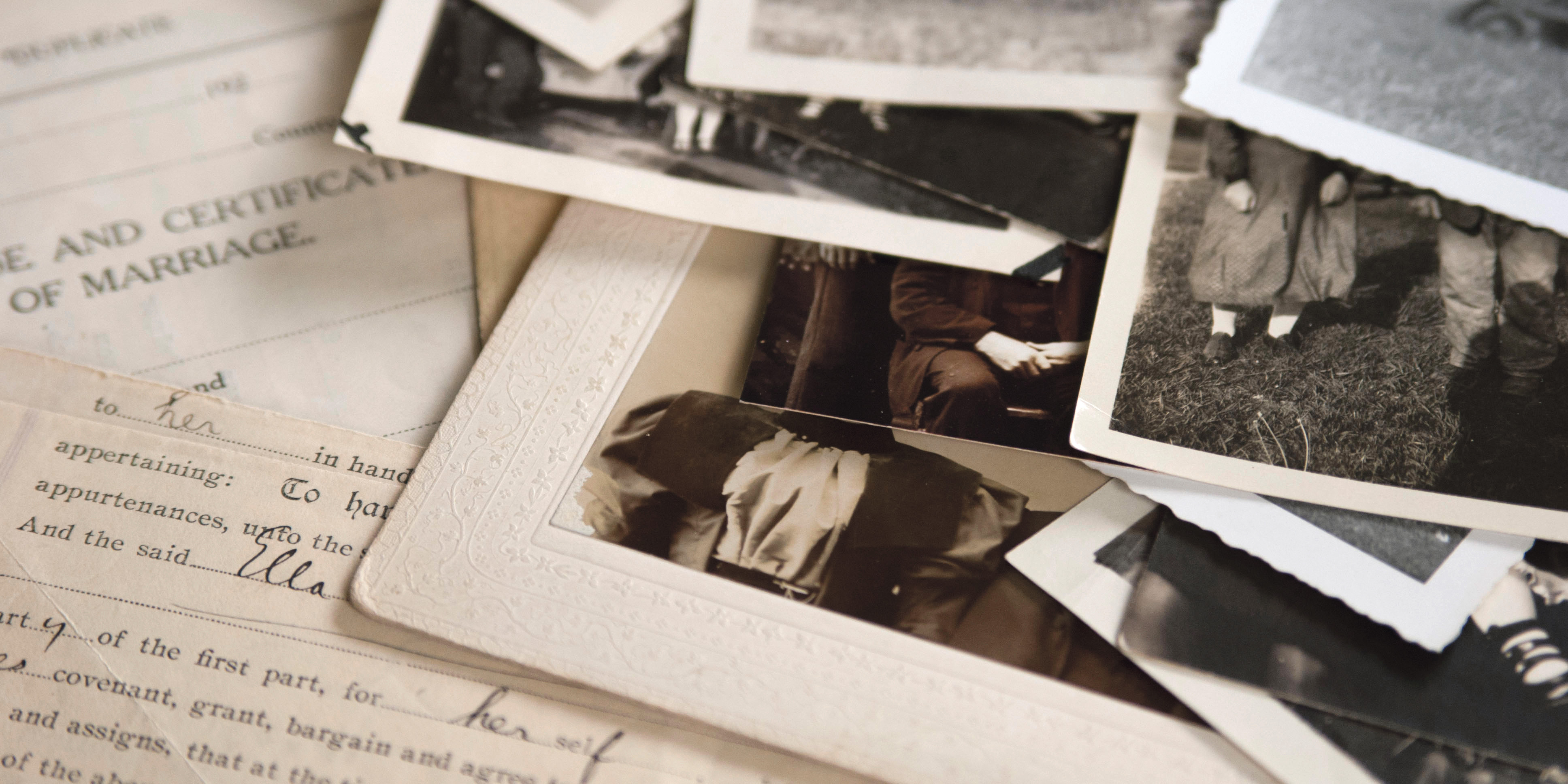My father believed in poltergeists. He probably had no choice. This rational man, who started his working life as a draughtsman with South African Railways and went on to manage a group of successful transport and trucking companies, was thrust into the weird world of The Unseen when one of his employees revealed that his house was haunted.
Decades after my father died, I retrieved a typewritten account of his experiences from a dusty box in the attic. It told of the many visits he made to the man’s house in Kimberley at various times of the night, armed with a tape recorder, and the sometimes funny, occasionally frightening encounters with what appeared to be a stone-throwing ghost.
I recall one nighttime visit to the house as a 16-year-old, when stones assailed us from all directions and two police officers were chased away with half-bricks. It would have been easy to attribute the stone-throwing to delinquent youths, but as my father’s investigation suggested, there weren’t any.
What did I think at the time? I recall being quite scared when a barrage of stones struck the ground a few metres from where I was standing, but because my teenage brain was preoccupied with zits and girls, there is no forensic audit for scrutiny.
My father asked all the obvious questions. Was it an attention-getting ruse by the family concerned? There seemed no point, and the evidence didn’t support it. Why did powerful torches reveal no sign of stone-throwers or any other suspicious activity? At one stage, concerned neighbours stationed themselves within stone-throwing distance of the “haunted” house, and found nothing suspicious.
Did she know she was about to die when she wrote in her little black notebook, found under her bed two days after the funeral service carried her away, ‘Sorry, I’ve left the flat in a bit of a mess’?
Some of those tape recordings survived a major house move, and although I don’t believe in ghosts or anything not explicable by science (with the possible exception of quantum mechanics), they still make the proverbial hair rise. I hate this because it violates my belief that just about everything in the universe can be explained without resorting to ghostly infestation.
Here’s my point: If my father hadn’t taken the trouble to write down what he saw and heard, or capture a few soundbites on increasingly frail acetate, we wouldn’t have a record of those poltergeist encounters. Oh, how I wish I had asked him about all the other stuff that made up his life: Who taught him to ride a bicycle, did he like or despise his teachers, what did he do for fun, did he ever break the law, what made him fall in love with my mother, did they have a conventional courtship, were their early financial struggles the stuff of tragedy, what prompted them to adopt three kids?
Asking the right questions
Then, my mother. Was she genuinely content with her role as housewife, cook and keeper of the home, what prompted her (mercifully brief) nervous breakdown, was she disappointed when her brood showed little interest in her life, where did she find the courage to join my father on stage in the local theatre to sing songs from the American musical Oklahoma!? Did she have unfulfilled dreams?
And did she know she was about to die when she wrote in her little black notebook, found under her bed two days after the funeral service carried her away, “Sorry, I’ve left the flat in a bit of a mess”?
Read more in Daily Maverick: ‘Remember your angina pills’ and other life lessons from my father: Hym Rabinowitz
Reading that sentence made me cry, obviously. This from a widow aged 89 who had brought up a family, sold her house and most of her belongings after the death of my father and gone to live in another city for the better part of three decades. And she was apologising for leaving her flat untidy?
Why, oh why, did we not ask the right questions when they were alive? Part of the explanation may be the dogged preservation of family secrets by the older generation, which has come to include me. Should we feel obliged to share details of our early lives, our sins (both real and imagined), our self-doubts, our dreams and fears, our lapses from moral rectitude, our family scandals, with anyone else? Of course not. Against that, almost everyone has a story that deserves to be told: The key is to find out who wants to tell it, and when. No life story is too ordinary to ignore or forget.
Here’s what I propose. If your ageing parents or relatives are willing and able, ask them to sit down with you for a few hours of recorded conversation about their lives. You can use an app on your phone to pick up both sides of the conversation for transcription at your convenience.
Aside from faded and undated photographs, had we kept anything that reminded us of our much-loved and long-departed parents?
If they ask why you want to do this, say it’s because they are not invisible to you, they remain loved, and you want to preserve their story. Your next step is to assemble that story in logical order, which may or may not be chronological, and produce it in the form of a pamphlet or even a bound volume, perhaps with images to match the anecdotes.
Of course, there would need to be rules. No lurid accounts of inappropriate dalliances? Check. No dissemination of content prior to approval by the subject? Check. Publication only postmortem? Er, okay.
Read more in Daily Maverick: Why can’t you remember being born, learning to walk or saying your first words? What scientists know about ‘infantile amnesia’
This leads to another question: What about your story? Would you be willing to share a candid account of your life so far in the knowledge that it could make you a teensy bit vulnerable in a world dominated by the weirdness of social media? Personally, I’m not sure. As far as I know, I’ve never done anything that could be considered truly evil, aside from that time I visited Victoria Falls in Zimbabwe (then Rhodesia) as a Boy Scout and helped to carry someone’s stretcher into the rain forest while he was asleep.
How to remember
Early this morning, I had a meaningful conversation with Melanie, my partner of 43 years, even though we’re married. I reminded her that we had watched many episodes of the delightful BBC series The Repair Shop in which people of all ages turn up with worn and broken toys, clocks, machines and myriad other objects that carry huge sentimental value.
Aside from faded and undated photographs, had we kept anything that reminded us of our much-loved and long-departed parents?
Sadly, our haul was meagre to the point of disrespect. One medal from World War 2 awarded to my wife’s father, a battered military rations booklet, my father’s self-winding watch, a painstakingly researched history of our family, and a bunch of tattered school reports attesting to his brilliance. That was it. Our recent emigration, preceded by a brutal clearing-out, accounted for the absence of my father’s old slide projector, his tape recorder, a few old cameras, my mother-in-law’s lacquered bureau and other items that we would never see again. But still…
Did we have anything that our children might take to The Repair Shop after we died?
Melanie pondered this for a moment. “Most of my good jewellery has been stolen over the years, so I can’t think of anything. I suppose I could pickle you in formaldehyde and ask them to restore your good looks, but I doubt if they would tackle something like that.”
How about my little leather boots, lovingly preserved by my mother?
Melanie: “Can you genuinely see one of our kids turning up at The Repair Shop with a pair of gnarly old boots, with tears running down their cheeks? Anyway, one boot definitely has a bit of doggy-doo under it. That wouldn’t be fair.” DM
Alan Duggan was founding editor of the sci-tech magazine Popular Mechanics.
This story first appeared in our weekly Daily Maverick 168 newspaper, which is available countrywide for R29.
 DM-09122023-001-1
DM-09122023-001-1




 DM-09122023-001-1
DM-09122023-001-1